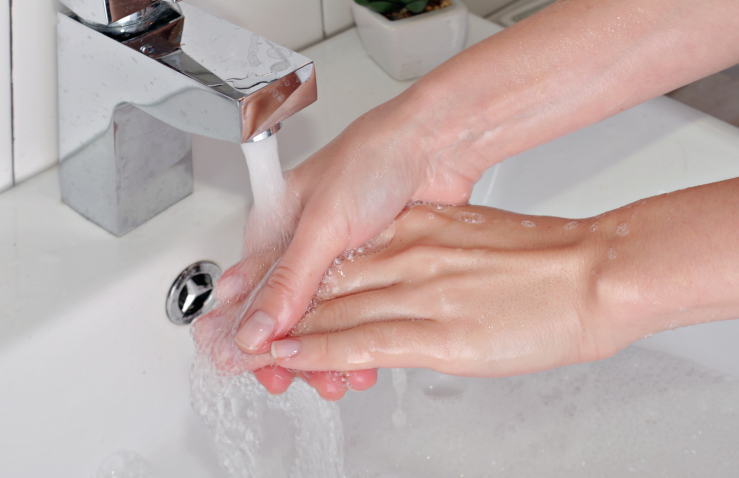
2 min read
Washing your hands may seem like a trivial part of your day, but it is actually very important. Having clean hands may help prevent you from getting sick and spreading germs to other people. There are many diseases and health conditions that can be spread by not washing your hands or not washing them properly. The common cold, Salmonella, E.coli, norovirus, respiratory infections and hand-foot-mouth disease can all be spread by not washing your hands, not washing them well enough or not washing them when you really should be. Read on to learn more information about properly washing your hands!
Examples of when you should wash your hands
Always wash your hands before:
- Preparing food
- Eating a snack or meal
- Feeding a baby, child or someone else
- Caring for someone who is ill
- Treating a cut, wound or burn
Always wash your hands during:
- Food preparation
- Cleaning up after eating
- An illness, cold or infection
Always wash your hands after:
- Using the bathroom
- Blowing your nose, coughing, or sneezing
- Changing diapers or cleaning up after a child who has used the toilet
- Petting an animal,
- Touching pet food, pet treats
- Cleaning up animal waste
- Touching garbage
Wash your hands properly with these easy steps!
- Wet your hands with water
- Apply soap
- Rub your hands together to create a lather
- Continue rubbing until the backs of your hands, between your fingers and under your nails have all come in contact with the soap. You should do this for at least 20 seconds.
- Rinse your hands under running water
- Dry your hands
Don’t rely on hand sanitizer!
While hand sanitizers come in handy when you’re unable to access soap and water, they do not get rid of all of the germs.
For Health Advocate Members
If you are a Health Advocate member with access to the wellness coaching component of our Wellness Program, contact a coach today for more tips to help keep you healthy!
Original Source: http://blog.healthadvocate.com/2016/05/practice-proper-handwashing-to-prevent-disease/